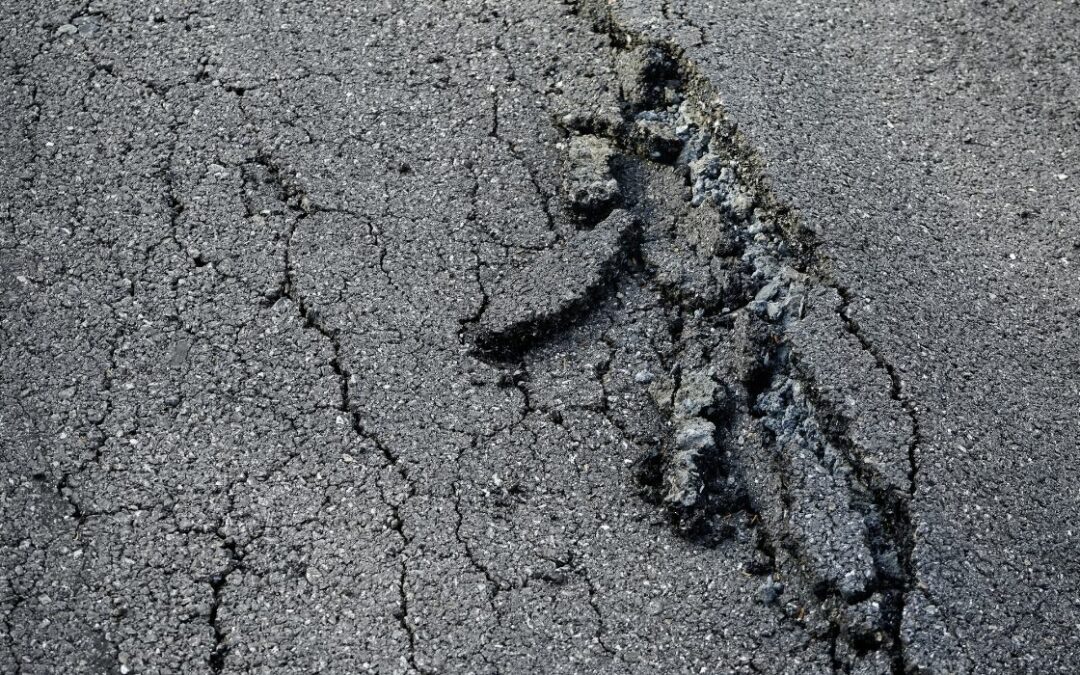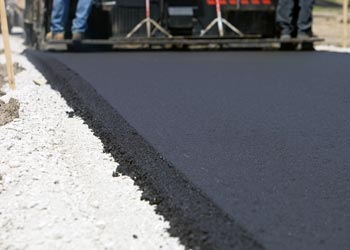Enhance Security and Availability: Hot Mix Asphalt for Angled Parking Lots
Enhance Security and Availability: Hot Mix Asphalt for Angled Parking Lots
Blog Article
Exploring the Ecological Advantages of Hot Mix Asphalt
The utilization of Warm Mix Asphalt in facilities projects offers a compelling instance for lasting advancement and ecological stewardship. By diving into the elaborate information of its production procedures and the cutting-edge use recycled products, a deeper understanding arises of just how this innovation surpasses plain surface applications. The ecological benefits of Hot Mix Asphalt expand much beyond first perceptions, offering a nuanced point of view on just how this product can lead the way for a greener future.

Lowered Greenhouse Gas Emissions
Warm Mix Asphalt production provides a considerable reduction in greenhouse gas discharges contrasted to various other pavement materials. The production procedure of Hot Mix Asphalt includes warming the combination of accumulation and asphalt binder to heats. This process requires less energy contrasted to the manufacturing of different sidewalk products, leading to reduced greenhouse gas discharges. Additionally, using recycled materials in Warm Mix Asphalt further adds to reducing its ecological effect. By incorporating redeemed asphalt sidewalk and recycled asphalt roof shingles into the mix, the requirement for virgin materials is lowered, leading to power financial savings and decreased emissions associated with extraction and handling.
Studies have revealed that Warm Mix Asphalt pavements have a smaller sized carbon impact over their life cycle contrasted to various other pavement options. The longevity and recyclability of Warm Mix Asphalt even more boost its ecological benefits by lowering the requirement for frequent upkeep or replacement, therefore saving sources and reducing emissions connected with reconstruction tasks.
Energy Performance and Conservation
The manufacturing procedure of Hot Mix Asphalt not just reduces greenhouse gas emissions but also adds dramatically to power performance and conservation efforts. Energy effectiveness is a key benefit of Warm Mix Asphalt manufacturing contrasted to other pavement kinds. The longevity of Warm Mix Asphalt minimizes the frequency of maintenance and repair, leading to lasting power cost savings.
Sustainable Sidewalk Solutions

One secret aspect of sustainable pavement remedies is making use of recycled products such as reclaimed asphalt pavement (RAP) and recycled asphalt tiles (RAS) By integrating these materials into the asphalt mixes, the demand for virgin resources is decreased, resulting in lower energy consumption and greenhouse gas emissions during manufacturing. In addition, the reuse of these products assists divert waste from landfills, contributing to a more sustainable and circular economy.
Furthermore, lasting sidewalk options focus on optimizing pavement style to enhance efficiency and long life. Methods such as warm mix asphalt (WMA) and stone mastic asphalt (SMA) boost the durability and durability of pavements, reducing the demand for regular repair work and replacements. By applying these ingenious techniques, facilities designers can produce sidewalks that not just satisfy high-performance requirements but also lessen their ecological footprint.
Minimized Environmental Impact
With a concentrate on sustainability and eco-conscious techniques, sidewalk options are made to reduce the ecological effect of construction and upkeep processes. Warm mix asphalt, in specific, provides several benefits that add to lowering the general environmental footprint of road framework. One essential facet is the recyclability of asphalt, which can be reused several times without compromising its quality. This particular helps in saving all-natural resources and lowering the amount of waste sent to landfills.
Furthermore, the production of hot mix asphalt gives off lower degrees of greenhouse gases contrasted to other pavement products, making it an extra eco-friendly choice. The power performance of asphalt plants has actually also enhanced for many years, leading to decreased fuel usage and lower discharges. In addition, the smooth surface area of hot mix asphalt decreases rolling resistance for automobiles, causing reduced gas intake and lowered air contamination from vehicle emissions.
Contribution to Climate Change Mitigation
Warm mix asphalt plays an important function in mitigating environment modification with its sustainable residential properties and minimized ecological effect. One considerable contribution to climate change reduction originates from the power effectiveness of hot mix asphalt production. Compared to various other sidewalk alternatives, the production process for hot mix asphalt consumes much less energy and releases lower levels of greenhouse gases, thus reducing its total carbon impact.
In addition, hot mix asphalt's capability to show sunlight, recognized as albedo, hot mix asphalt assists in lowering city warm island impacts. By reducing warmth absorption and retention, warm mix asphalt pavements can decrease the need for air conditioning in city locations, subsequently reducing greenhouse gas emissions connected with energy intake for cooling down purposes.
In addition, the toughness and recyclability of hot mix asphalt further improve its climate adjustment mitigation capacities. Regrading. The long life-span of asphalt pavements lowers the requirement for frequent repair services or replacements, inevitably decreasing the carbon discharges linked to road maintenance tasks. The recyclability of asphalt materials reduces the need for virgin resources and reduces the ecological impact of pavement building and construction, lining up with lasting practices for climate adjustment reduction.
Conclusion
In final thought, the ecological benefits of Warm Mix Asphalt demonstrate its considerable payment to reducing greenhouse gas emissions, saving power, and decreasing environmental influence. This sustainable pavement option straightens with environment change mitigation efforts, promotes source conservation, and enhances facilities advancement. By making use of recycled products, energy-efficient manufacturing procedures, and durable design, Warm Mix Asphalt plays an important duty in cultivating an extra environmentally friendly approach to facilities building.
The production process of Hot Mix Asphalt involves heating the mixture of aggregate and asphalt binder to high temperatures. By including reclaimed asphalt pavement and recycled asphalt shingles right into the mix, the demand for virgin products is lowered, leading to power financial savings and decreased discharges associated with extraction and handling.
One trick facet of lasting pavement services is the usage of recycled products such as recovered asphalt sidewalk (RAP) and recycled asphalt tiles (RAS) Methods such as warm mix asphalt (WMA) and stone mastic asphalt (SMA) improve the durability and strength of sidewalks, minimizing the requirement for frequent repairs and substitutes. Contrasted to other sidewalk options, the manufacturing procedure for hot mix asphalt consumes much less power and releases lower degrees of greenhouse gases, thus minimizing its total carbon impact.
Report this page